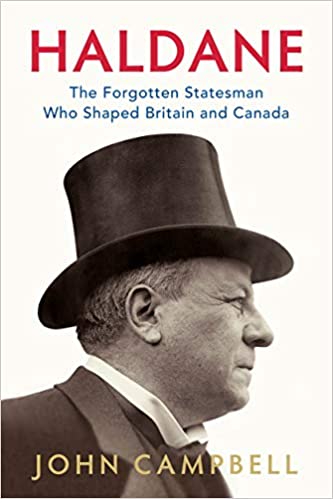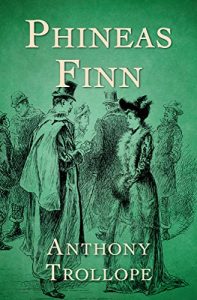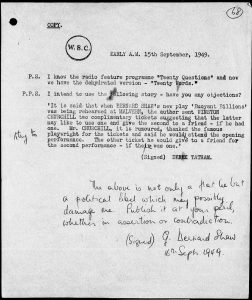
Finest Hour 190
The Forgotten Statesman

April 14, 2021
Finest Hour 190, Fourth Quarter 2020
Page 45
Review by John Campbell
John Campbell, Haldane: The Forgotten Statesman Who Shaped Modern Britain, HurstPublishers 2020, 483 pages, £30. ISBN 978–1787383111.
John Campbell’s books include biographies of F. E. Smith, Aneurin Bevan, Edward Heath, Margaret Thatcher, and Roy Jenkins.
First, to avoid confusion, I should make it clear that I am not reviewing my own book. The author of this unusual biography shares my name; but this (with the acknowledged help of a young collaborator) is his first published work. He is not a professional historian but the recently retired chairman of his own private equity house; and his book is a highly personal labour of love. He has known the Haldane family all his life, ever since he was taken as a boy to visit Cloan, the family’s house in Perthshire, and he reveres Richard Burdon Haldane to the point of hero-worship. His aim, as frankly stated in his subtitle, is to assert Haldane’s claim to be the unjustly forgotten architect of much of twentieth-century Britain. Not only that, the author presents Haldane as a model of thoughtful statesmanship that our popularity-driven politicians of today should seek to emulate.
It is a bold project, but Campbell just about brings it off. His book has an unconventional structure. Instead of the usual cradle-to-grave narrative of political biography, Campbell devotes five opening chapters—145 pages—to the private man. This could be confusing to a reader not already familiar with the issues and controversies of Edwardian politics; but it does root Haldane’s achievements in the intellectual soil from which they sprang.

2025 International Churchill Conference
Haldane’s interests outside politics were extraordinarily wide. Following a formative year at the University of Göttingen, he became absorbed in Hegelian philosophy, wrote several weighty philosophical books, and was actually offered the chair of Moral Philosophy at St. Andrews, which reluctantly he had to turn down. His literary and scientific friendships ranged from Oscar Wilde (whom he visited in prison and encouraged to write The Ballad of Reading Gaol) to Einstein (whom he invited to England and introduced to the British scientific community).
As an ambitious young barrister-MP in the 1890s, Haldane was, with his closest friends Edward Grey and H. H. Asquith, a Liberal Imperialist and supporter of the Boer War, which made him an object of some suspicion to more radical Liberals. But in all other respects he was essentially a progressive. He had hoped that Liberal openness to constitutional and social reform before 1914 would have made a separate Labour party unnecessary; but when the Liberals imploded after 1918, Haldane joined Labour and became the party’s first Lord Chancellor in 1924.
Haldane’s claim to fame rests on three principal areas, to each of which Campbell devotes a substantial chapter. First, as Secretary of State for War from 1905 to 1912, Haldane thoroughly reorganised the army and was generally credited with making it ready for war in 1914. His reforms inspired calls for a similar modernization of the navy, which led to Winston Churchill’s appointment as First Lord of the Admiralty in 1911. Ironically Haldane’s known affinity for German culture led to his being hounded by the press as a traitor when the Great War began. In 1915 Asquith shamefully bowed to this baseless outcry by letting Haldane go—along with Churchill—when he formed a coalition government.
Haldane’s two other great fields of activity also involved a reforming impulse. Though he never held any official responsibility for education, he chaired two Royal Commissions as well as numerous other committees working to improve British schools and, with Sidney Webb, was instrumental in founding the London School of Economics. Haldane also thought, wrote, lectured, and chaired yet more enquiries on the machinery of government, the relations of ministers and civil servants—he was the founding president, in 1922, of the Institute of Public Administration—and the proper role of the state. As president of the Royal Economic Society from 1906 to his death in 1928, he was one of the first to embrace Keynesian ideas of demand management and deficit financing.
Campbell actually goes so far as to wonder: “Was Haldane a Keynesian or was Keynes a Haldanean?” This is typical of Campbell’s main fault as a biographer. Haldane unquestionably had his finger in an extraordinary number of pies, with unusually clear ideas of what he wanted to achieve and how to achieve as much of it as possible by persuasion and tireless networking. (One wonders how he found the time; but then one has to remember that he was a wealthy bachelor with plenty of servants and nothing to do but read, write, and entertain important people over country weekends and good dinners.) Campbell convincingly demonstrates Haldane’s catalysing role in a huge number of areas of public policy, from MI5 to the Boy Scouts (not forgetting his role on the Judicial Committee of the Privy Council in shaping the federal constitution of Canada). But he does over-egg it, allowing very little agency to anyone else: Churchill, David Lloyd George, and even Asquith, the Prime Minister under whom he carried out his army reforms, barely figure as significant figures, as if Haldane achieved everything by himself. Nevertheless this is a substantial and scholarly book, and it is difficult not to sympathise with Campbell’s closing suggestion that some of Haldane’s combination of idealism and rational long-term thinking is badly needed in today’s world of short-term populist politics.
Subscribe
WANT MORE?
Get the Churchill Bulletin delivered to your inbox once a month.





